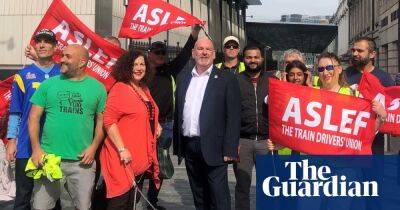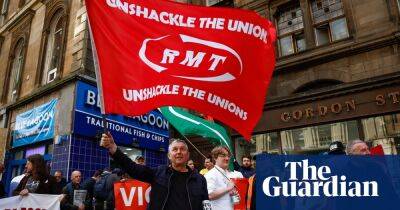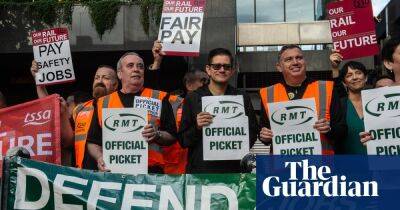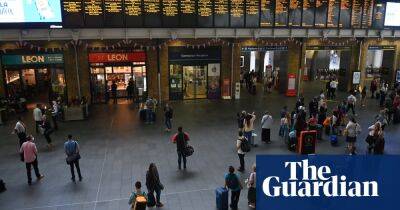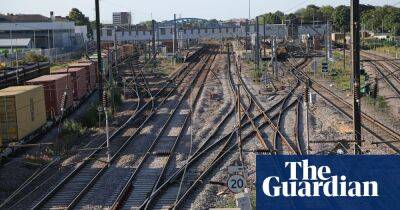Rail strike disruption affects millions in UK as Shapps threatens crackdown
Much of Great Britain’s train network has ground to a halt after workers went on strike, disrupting travel for millions amid a worsening row with rail companies over jobs, pay, pensions and conditions.
With only about one in five trains running on around half the network, some lines closed and more strikes planned for Saturday and next month, the transport secretary, Grant Shapps, threatened to ban “strikes by different unions in the same workplace within a set period” and ensure critical industries such as rail maintained minimum service levels.
Mick Lynch, the general secretary of the Rail, Maritime and Transport union (RMT), responded by attacking anti-union measures that have also been proposed by the Tory leadership contenders Liz Truss and Rishi Sunak, as an attempt to “take away human rights and the democratic right of people to express themselves through their trade union”.
Pickets were set up outside train stations across England, Wales and Scotland as members of the RMT at Network Rail and 14 train operators went on strike. Members of the Transport Salaried Staffs’ Association (TSSA) at Avanti West Coast also walked out on Wednesday. Both unions are planning coordinated strikes on 18 and 20 August, while the RMT announced a strike on London Underground on 19 August.
The RMT has rejected a 8% pay offer spread over three years from Network Rail as “measly”, saying it is not close to current inflation. The offer was conditional on changes to working practices, rules on redundancies and work-life balance, the unions said. The RMT opposes proposals to close ticket offices as more journeys are booked online, as well as amalgamating pay grades and changing pensions arrangements.
Andrew Haines, the Network Rail chief
Read more on theguardian.com












